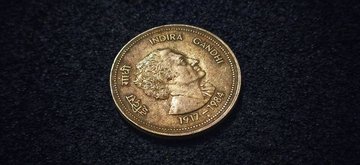
Indira Priyadarshini Nehru
‐
Prime Minister of India (elected 1966) who was educated in Britain
Other names
Indira Gandhi
Place of birth
Date of arrival to Britain
Location(s)
Woodstock Road
Oxford
OX2 6HD
United Kingdom Badminton School
Westbury Road
Westbury on Trym
Bristol
BS9 3BA
United Kingdom
Place of death
Delhi, India
Date of time spent in Britain
1927 (short visit), 1936 – Spring 1937 (Badminton School), September 1937 – November 1938 (Oxford University), April 1939 – December 1939, January 1941.
About
Indira Gandhi was the daughter of Jawaharlal Nehru and Kamala Nehru. As Nehru’s daughter, she became actively involved in the struggle for India’s independence. Gandhi was educated at a number of schools and colleges in India and abroad. She first visited Europe in 1926, accompanying her parents to Switzerland for her mother’s convalescence. She visited Paris and London with her parents in 1927 and returned to India in December 1927. In April 1930 she formed the youth wing of the Indian National Congress, the ‘Vanar Sena’. She attended the Ecole de Bex in Switzerland, December 1927; St Mary’s Convent School in Allahabad, May 1931; and the Pupil’s Own School in Pune (Poona) from May 1931 to April 1934. She passed her matriculation examination in April 1934 and in July 1934 was admitted to Rabindranath Tagore’s Visva-Bharati University at Santiniketan, Bengal.
In April 1935 Gandhi moved to Europe with her mother. In 1936 she joined the Indian National Congress. In February 1936 she attended Badminton School near Bristol and then in 1938 she joined Somerville College, Oxford. In the same year she became a member of the India League and through the contacts of her father was introduced to many figures involved with the Indian struggle for independence in the UK. Krishna Menon persuaded Indira to give speeches at meetings. She was involved with the India League's campaigns, especially in support of Spanish Republicans in the Spanish Civil War. While in England she met with her future husband Feroze Gandhi, who was also a member of the India League and studying in London. Plagued by ill health, she was attended to by C. L. Katial and she made repeated trips to convalesce in Switzerland.
Indira Gandhi returned to India in 1941 together with Feroze Gandhi, whom she married in 1942. She took an active part in the Quit India movement and was imprisoned in Naini Central Jail from September 1942 to March 1943. Gandhi served twice as India's Prime Minister and was assassinated on 31 October 1984.
Miss B. M. Baker (head of Badminton School), P. C. Bhandari (Dr), M. K. Gandhi, Agatha Harrison, Carl Heath (President of the India conciliation group), Naoroji Jal, C. L. Katial, Kailas Nath Kaul and Sheila Kaul (maternal uncle and aunt who lived in London), Parvati Kumaramangalam, George Lansbury (Labour leader of the 1930s), Harold J. Laski, Muriel Lester (social worker in London, who was host to M. K. Gandhi during his 1931 visit), Krishna Menon, Lailamani Naidu and Padmaja Naidu (daughters of Sarojini Naidu), Sarojini Naidu, Jawaharlal Nehru, P. Subbarayan (barrister and political leader of Tamil Nadu), Edward John Thompson, Rabindranath Tagore.
University Labour Club
Brass, Paul R., ‘Gandhi, Indira Priyadarshini (1917–1984)’, Oxford Dictionary of National Biography (Oxford University Press, 2007) [http://www.oxforddnb.com/view/article/31136]
Frank, Katherine, Indira: The Life of Indira Nehru Gandhi (London: Harper Collins, 2002)
Gandhi, Sonia (ed.) Freedom's Daughter: Letters between Indira Gandhi and Jawaharlal Nehru, 1922–1939 (London: Hodder & Stoughton, 1989)
Gandhi, Sonia (ed.) Two Alone, Two Together: Letters between Indira Gandhi and Jawaharlal Nehru, 1922–1964 (New Delhi: Penguin Books India, 2004)
Vadgama, Kusoom, India in Britain: The Indian Contribution to the British Way of Life (London: Robert Royce, 1984)
Image credit
Photo by Mathews Paul on Unsplash
